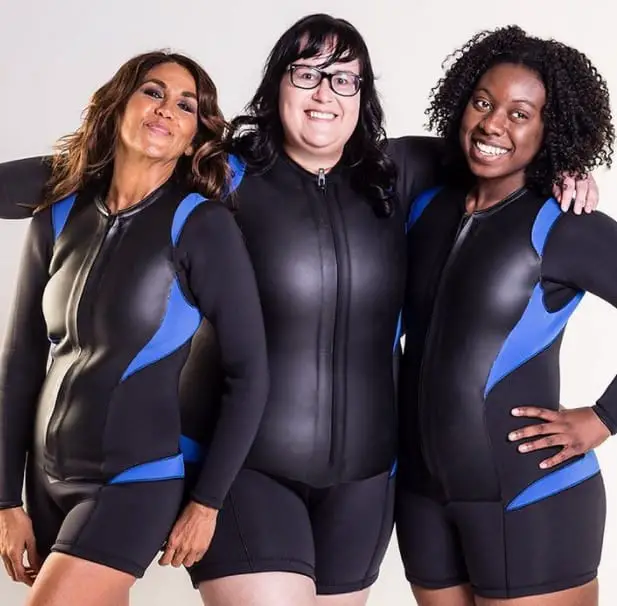You rarely see photos of plus-sized divers, so naturally that raises a few questions such as: Is scuba diving a good exercise for weight loss? Is there a maximum weight for scuba diving? How about a minimum weight?
No, there isn’t a weight limit for scuba diving. Scuba diving is a surprisingly accommodating activity. It does not discriminate against young divers or old divers, skinny or fat, or even the physically disabled. As long as you are fit to dive and have your scuba certification, then there’s no reason why you can’t go scuba diving.
Despite there not being an official weight limit, there are still limits insofar as your ability to don your scuba gear, tread water, perform frog kicks, and control your breathing. That said, being obese is generally not healthy and increases one’s risk of health problems which can affect one’s performance underwater. In this article, we will go over specifically how being overweight can affect scuba divers and what you need to know going forward.
Am I too heavy to scuba dive?
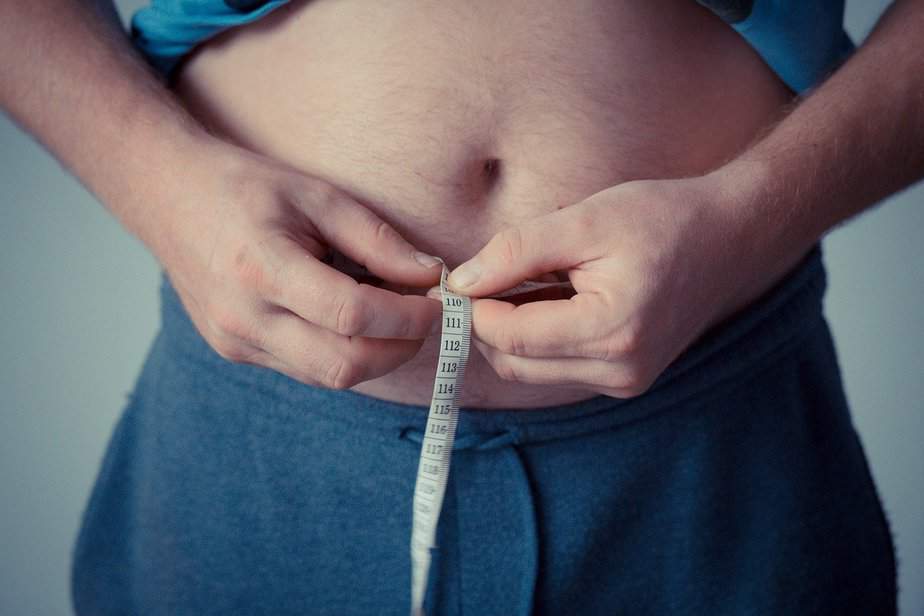
As we mentioned, scuba diving is surprisingly accommodating, and so the decision whether to dive or not to dive falls to the diver. That means sometimes scuba divers have to ask some hard questions such as: am I too old to dive now? Have my skills deteriorated too much over the years? And the question most pertinent to this article: Have I gained too much weight to scuba dive?
This problem is further exacerbated by the fact that scuba certifications never expire. It’s possible for someone to get their license when they were much leaner, gain a bunch of weight, and then come back 50 pounds heavier wondering if they are still allowed to dive. Technically yes, you are still allowed as there is no weight restriction on diving.
However, obesity and being overweight is becoming a major issue in the US. According to the CDC, from 2017-2018, the percentage of adults aged 20 and over who are overweight, including obesity, is 73.6%.
What exactly is overweight and obesity? It is a measure of a person’s weight relative to a “normal” weight adjusted for their height. The most common tool for measuring obesity is calculating one’s Body Mass Index (BMI) and seeing where it falls within a range. You can use this Adult BMI Calculator to calculate your BMI.
Then see where you fall within this table (data collected from the NIH):
| BMI | Classification |
| 18.5 to 24.9 | Normal weight |
| 25 to 29.9 | Overweight |
| 30+ | Obesity (including extreme obesity) |
| 40+ | Extreme obesity |
Statistically, ¾ Americans are somewhere in the overweight or obesity category. However, it is well-known that BMI is a flawed method of classifying one’s obesity level.
The most damning flaw of the BMI tool is that it only factors in total weight without distinguishing between muscle and fat. It is not unusual for athletes to have more muscle mass than the average person. Muscle also weighs 18% more than fat. Knowing these facts, you can get the sense that any exceptional physiques that are overly muscular will be mis-classified.
According to the BMI tool, various Olympic athletes would technically be “obese” even though they are so lean that their bulging six pack abs are clearly visible. The most extreme case of BMI mis-classification is in the sport of bodybuilding. Stage-ready male bodybuilders literally reach the point that they have 3-5% body fat on them (which is dangerously low), yet all bodybuilders would fall somewhere in the overweight or obese classification according to the BMI tool.
There are more practical and accurate ways of determining fitness to dive than BMI. Let’s start with: Can you fit into your scuba gear? Do dive shops sell equipment that fits you? If you cannot properly don scuba gear anymore, you are probably not able to scuba dive.
How about your ability in the water? As you’ll remember, the Open Water Diver course has a basic swim test that all students must pass. In case you forgot what it entails, you must tread water for 10 minutes and swim 200 m (656 ft) without the assistance of a buoyancy aid. If you can do these things, regardless of your weight, you are reasonably fit to dive.
How bodyweight affects scuba diving
Scuba diving inherently has its own share of risks, and you want to dive in with your best foot forward. Being a larger diver puts you at a disadvantage. In this section, we go over some considerations you should keep in mind if you want to scuba dive safely as a plus-sized diver.
General health
Being overweight comes with a whole laundry list of risks compared to being at a normal or healthy weight. You are more susceptible to diabetes, asthma, high blood pressure, cardiovascular diseases, and many more. All of these problems can make you unfit to dive.
Even if being overweight is not a dealbreaker for scuba diving eligibility, a heart or lung condition surely is. Discuss them with a hyperbaric doctor (a diving doctor) who will help you work around your conditions.
Fitness level
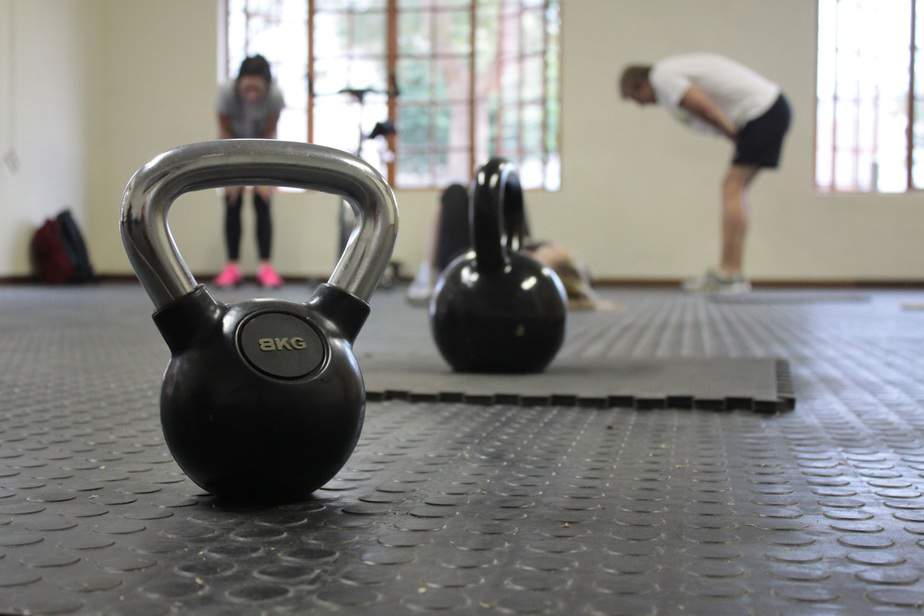
If you’re overweight, you’re literally carrying more weight than someone who isn’t. Many divers often complain about how heavy all of their diving gear is on land, and how much bulk it adds underwater.
Overweight divers have to deal with all of that PLUS their own added body weight. This extra stress can make it difficult for their heart and lungs to keep up. Larger divers may find that their dives end prematurely because they were constantly out of breath and used up their breathing gas too quickly.
Your ability to do any kind of shore diving is decreased because the walk to and from the shore would be too exhausting.
Divers need to be prepared to react suddenly if they need to. If a strong current or other emergency is putting them in danger, they need to have the stamina and strength to swim away.
Another factor to consider is the buddy system. How does being overweight affect your ability to provide assistance to your dive buddy? What about how it affects the way your buddy can help you?
Furthermore, your personal enjoyment depends largely on fitness level. You want to be able to freely explore where you want. There’s only so much to see if you stay in a limited area.
Getting into your scuba gear and climbing the ladder back onto the boat becomes exhausting if you’re overweight. Swimming against currents is tiring.
Risk of decompression sickness
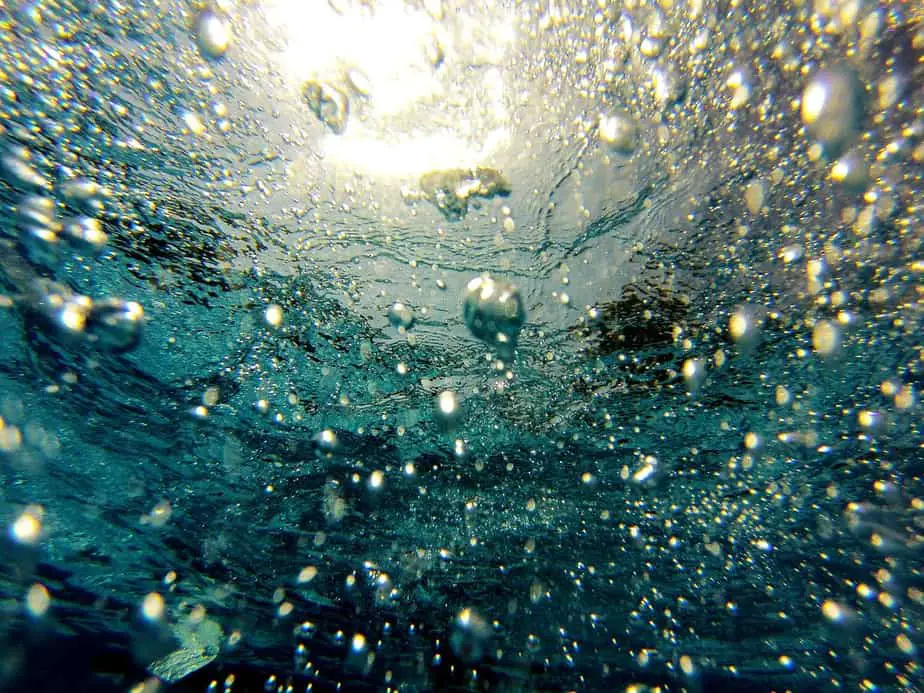
One of the biggest risks of scuba diving is decompression sickness (DCS). Also referred to as “The Bends”, DCS refers to any adverse effects caused by the nitrogen gas that has been absorbed into the bloodstream during diving coming out of solution too quickly. Put simply, when a diver ascends too quickly, they are at risk of DCS which can be deadly if left untreated.
Recreational scuba divers are less at risk of getting DCS than deep divers because rec divers are staying within their no-decompression limits (NDL). The NDL is an estimate of how long a diver can stay underwater while still being able to ascend directly to the surface without needing to perform any decompression stops and still be safe from DCS. However, it’s still recommended divers ascend slowly and perform a 3 minute safety stop 3-5 m from the surface.
With that said, one’s physiology can make one more susceptible to DCS. For instance, having higher fat content in the body allows nitrogen to build up slowly in fat tissue and take longer to dissipate. An overweight individual may have more inert gas load than someone leaner.
Furthermore, it’s important to recognize that dive computer algorithms were designed for people in a healthy weight range. It’s possible its calculations are not as accurate for individuals on extreme ends of the weight range.
Can overweight people learn to scuba dive?
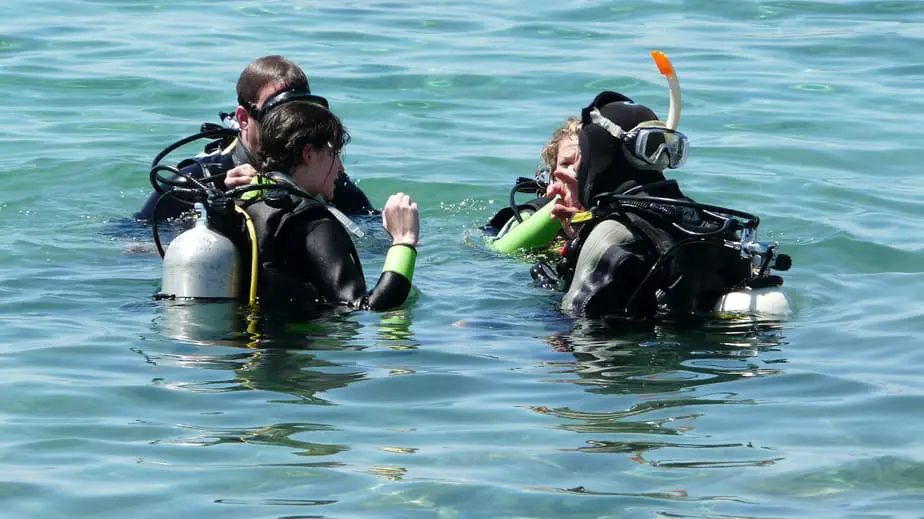
Maybe. Before you’re allowed into the water with scuba gear, divers need to complete a medical form. This is standard procedure for PADI, SSI, NAUI, and other similar training agencies. They are screening individuals for medical conditions that may be problematic while diving. For instance, if you have a history of asthma, there’s a chance you won’t be allowed to dive.
Similarly, if one is obese, they may be at risk of suffering a heart attack while diving which would almost certainly be fatal considering how long it’d take for one to get to a hospital. Assuming you have no medical conditions, there is another obstacle which we have already discussed: the swim test.
You don’t have to be a particularly strong swimmer, but you do need a baseline level of swimming ability and stamina. Again, what the instructor is looking for is that students can tread water for 10 minutes and swim 200 m (656 ft) without relying on a flotation device. In other words, you need to be relatively fit in order to pass the test.
When filling out the medical form, it’s vital for everyone’s safety that you’re filling it out honestly. If an emergency happens to you while diving, you are the one that’s going to suffer. Depending on what you filled out, the instructor may ask you to see a doctor to be medically cleared for diving.
The questionnaire will also ask you about your general fitness. If you know that your general fitness is not up to snuff, you need to start a fitness program to train your stamina and possibly lose some weight so you can be more fit to dive.
We recommend cycling, swimming, or using the elliptical machine for cardiovascular training. These exercises are low-impact meaning they don’t put much pressure on your joints. Heavier individuals who try to go for a run frequently report knee and ankle pain due to the immense pressure your leg joints are under when running.
If you’re unsure whether you’ll even enjoy scuba diving, you can try out the introductory Discover Scuba Diving course that PADI offers, or an equivalent from other agencies to get a feel for scuba diving.
Discover Scuba is a crash course where you’ll learn the fundamentals of diving in a day and try it out in a confined environment that is designed for absolute beginners. You can get a feel for how scuba equipment fits you and how well you can maneuver underwater with all of that gear.
Of course, none of this matters if the doctor doesn’t medically clear you for diving, so get that done first.
Equipment for plus-sized divers
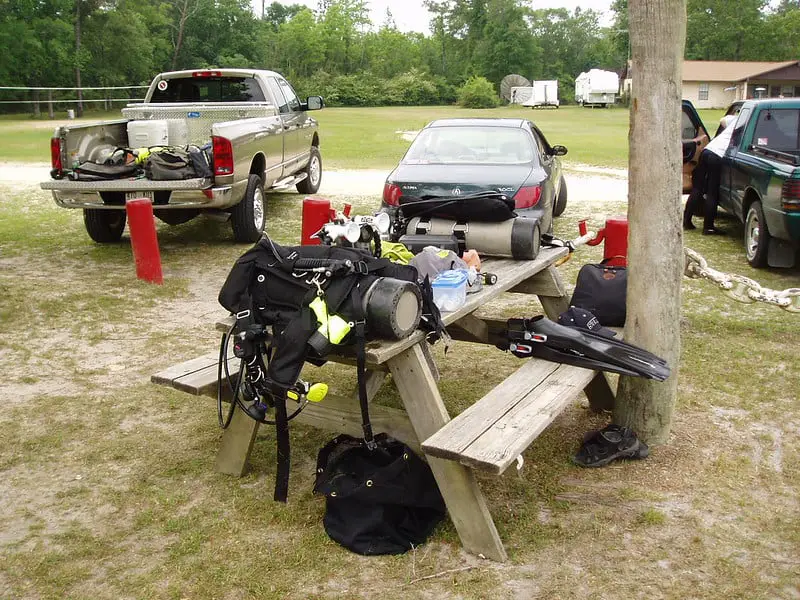
Obese divers need to be wary of equipment availability if you are planning on renting gear when dive travelling. There may not always be large size equipment available, so you had best call ahead to confirm and book in advance.
With that said, divers like to invest in their own kit once they know they are committed to the sport. Renting equipment is convenient but has a few downsides, namely that it’s impossible to know if a wetsuit or BCD fits or is sanitary. Divers are known to pee in their wetsuit after all, which is fine unless it’s a rental, in which case coming into contact with someone else’s pee is a bit disturbing.
When you have your own gear, you’ll know that the fit and the cleanliness of the equipment will be good each time. You also don’t have to waste time learning the new equipment, and your dive computer will have all of your old dive data, and so on.
One particular advantage of having your own kit is the weight system. It’s crucial that you know how to dump the weights in an emergency. Also, once you’ve set up the weights one time, it makes subsequent dives easier because you don’t have to do a buoyancy test anymore.
One unusual benefit of having more fat is that fat floats. An overweight diver ironically will be more buoyant and therefore requires more dive weight to help them descend from the surface at the start of the dive.
Carrying significant weight around a weight belt can be uncomfortable, so we recommend investing in a weight harness to distribute the weight more evenly around the upper body.
Tips for obese divers who are medically cleared to dive
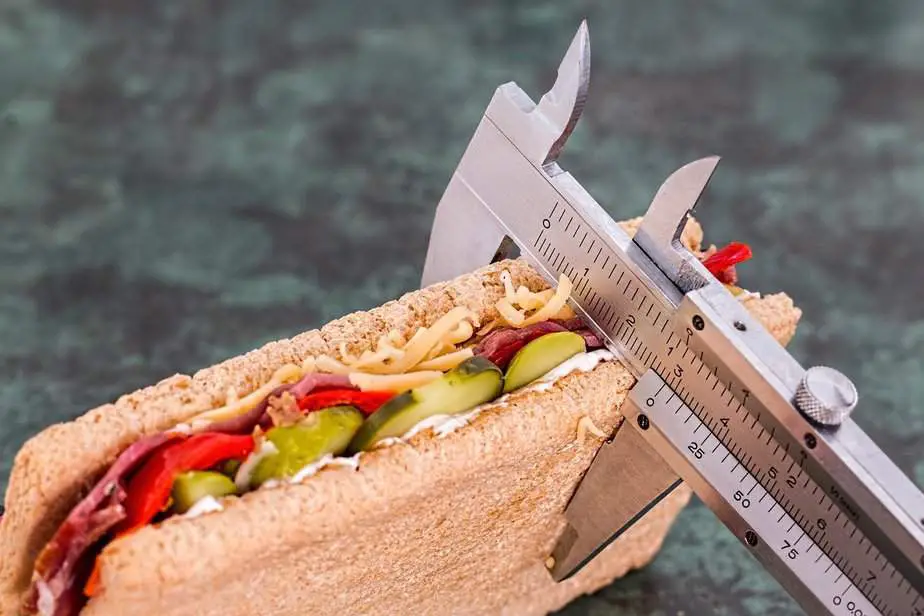
The tips can essentially be summarized as: know your limits, dive within them, and have fun doing so.
If you want the longest bottom times possible, in addition to diving nitrox, divers need to conserve their energy. This is doubly true for overweight individuals who are carrying more weight than the average person and will fatigue more easily.
Do your research on the weather conditions of the dive site. Ask local guides and instructors so that you can plan your dive. Going out for a dive when there are potential currents is not only risky, but it can cause you to over-exert yourself quickly.
To be safe, you should stay away from the more extreme dive sites and spend more time diving in calmer waters to build up experience and stamina. Even calm warm water boat dives can burn around 300 calories an hour. Do enough of these and you may find yourself leaner and fitter than ever before.
Obese individuals are more susceptible to health risks, so even if they have passed their medical, it’s important to understand that one’s fitness and health changes over time. If they experience any changes to their health or weight, they should go see a doctor to ensure they are still fit to dive.
Lastly, it’s never too late to change your lifestyle. Even if you are not fit to dive right now doesn’t mean that you will never be able to dive. On the contrary, our weight is one of the few things about our body that we can change if we want to.
It doesn’t even take a drastic shift in lifestyle either. Weight loss can be as simple as cutting out sugary drinks from your diet and going for a 15-30 minute walk around the neighborhood. As you shed those pounds and acclimate to the new lifestyle, you can consider doing more intense forms of cardio such as cycling, running on an elliptical, or swimming, and tighten up your diet even more (e.g. by replacing fast foods with healthy homemade foods).
There’s no need to go from your current lifestyle to some kind of extreme fad diet. Such a drastic shift in lifestyle so suddenly often results in a rebound later on. Many fad diets are also unhealthy and unsustainable over a long period. It is better to focus on a lifestyle shift so that the new lifestyle will become your normal lifestyle.
Change starts with small steps, so try to change a tiny thing about your life like eating one less plate of food, cutting out all sugary drinks, and going for short walks. That’s all you need to shed the first few pounds and hopefully get you started on a new, healthier path.
Are there any benefits that larger scuba divers have?
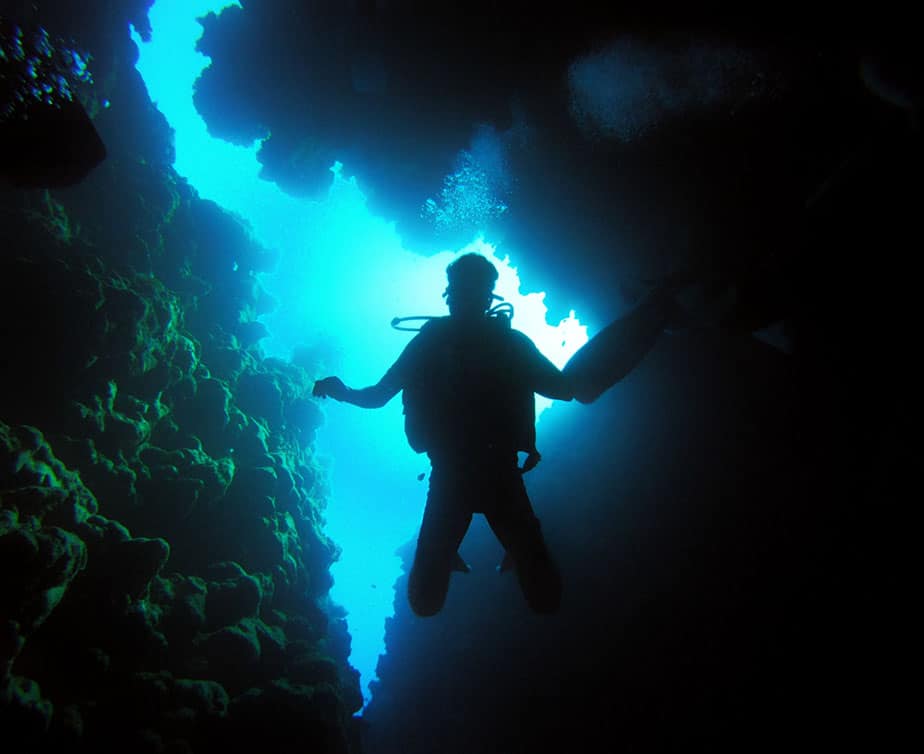
There are a few silver linings of holding more fat. The first is that fat is more buoyant than muscle which helps larger divers stay afloat. “Thus, persons with a high proportion of fat will float while some individuals with very low fat levels, heavy bones, and high muscle mass will sink.” However, that’s not much of a benefit considering that’s the purpose of the BCD, and it means more dive weights are required to start the descent.
Second, fat is an excellent insulator an obese diver will feel less cold than someone with less body fat. Heat loss is a serious issue when diving because of how well water conducts heat compared to air. To prevent heat loss, normally divers would need to wear a thicker wetsuit to stay warm.
A larger diver could wear a thinner wetsuit and feel just as warm as a slender diver wearing a thicker wetsuit. However, if you start to feel chilly in a thinner wetsuit, then it’s time to replace it with a thicker one.
Furthermore, like swimming, scuba diving is a low-impact sport that is easy on the joints assuming you’re diving from a boat. With shore diving, it’d be a different story and not one that we recommend if you’re plus-sized. When you’re underwater, you can alleviate much of the stress your joints and muscles would normally feel.
The feeling of weightlessness and increased range of motion offered by being underwater is quite calming and relieving. It’s no wonder that scuba diving is often recommended for disabled divers and veterans with PTSD.
Parting words
Your bodyweight is not as much of a concern for scuba diving as is your ability to perform all of the procedures underwater. Thus, there is no minimum or maximum weight for scuba diving. Weight limits are arbitrary, much like the very flawed BMI for determining one’s obesity level relative to a “normal” person. Thankfully, scuba diving does not have any weight limits.
That said, there are some very real health concerns that obese individuals need to be wary of. Those with a higher body weight may have or are on the path to getting a medical condition that can affect their eligibility to scuba dive. Before scuba diving, overweight individuals should see a doctor to determine if they are fit to dive.
Thankfully, being overweight is something that you can change if you want to. If you are currently overweight, unhealthy, and out of shape, it doesn’t have to define you for the rest of your life. You can improve your physical fitness, health, and scuba diving abilities.
We have already given some general tips on how one can shed some pounds, however there’s only so much advice we can give over an article. If you’re really serious about scuba diving but are currently out of shape, we recommend hiring a personal trainer and a dietician to help out.
Even if you are technically still allowed to dive, we highly recommend doing some training to build up your stamina and performance underwater. As long as you err on the side of caution, and do some prep work, you can still enjoy scuba diving even if you are on the heavier side.
Photo Credits: Truli Wetsuits

